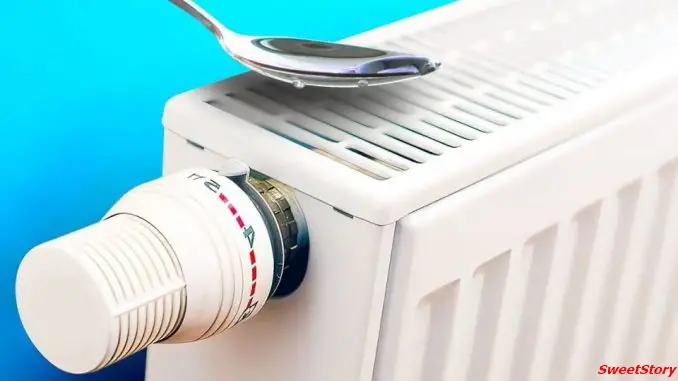
As temperatures begin to drop, many households will soon rely on heaters to stay warm. With the cold snap approaching, families will face the challenge of managing their heating costs. To avoid excessively high electricity bills while maintaining a comfortable home temperature, it’s crucial to make sure that the heat generated by the radiators is used efficiently. An easy but effective trick is to use a simple product that will deliver surprising results. Here’s what you can do!
How can you optimize radiator heat to save energy?
Before diving into energy-saving tips, it’s important to remember that running a high-temperature heater continuously can have health effects, especially for children and the elderly. The ideal indoor temperature is usually between 18°C and 20°C (64°F – 68°F), as anything higher can be harmful and might also cause your monthly utility bills to skyrocket.
However, if you’re looking to save money, the first step is ensuring that your radiators are not wasting heat. This might sound simple, but improper radiator maintenance can lead to inefficiency. If the radiator is clogged or dirty, it won’t be able to release heat effectively. When heat isn’t properly distributed, the radiator will consume more energy to compensate, increasing your monthly bill.
A simple trick to clean your radiators and save energy
The good news is that you don’t need complex tools or chemicals to clean your radiators. A very simple trick, using just a spoonful of lemon juice combined with baking soda, can do wonders. Here’s how:
- Prepare the cleaning solution: In a glass of water, add one spoonful of lemon juice and a little bit of baking soda.
- Apply the solution: Soak a clean cloth in the mixture and use it to wipe down the radiators, ensuring that you cover all surfaces.
- Rinse and dry: After cleaning, simply rinse off any residue with a clean, damp cloth and let it dry.
This simple yet effective method will not only clean and sanitize your radiators but also leave behind a fresh, lemony scent. Your radiators will be ready to go, and you can enjoy the added benefit of improved air quality in your home.
Another cleaning solution for deep cleansing
For a more thorough clean, you can use a different solution made from white vinegar, alcohol, and water. Here’s what you need to do:
- Mix one tablespoon of white vinegar with one tablespoon of alcohol and one liter of water.
- Apply the mixture to the radiators in the same way as the previous method.
- Rinse off any residue, and allow your radiators to dry.
This solution will effectively degrease your radiators and remove dirt, ensuring they run efficiently throughout the winter months.
Additional ways to optimize heating and save energy
While cleaning your radiators is an essential step, there are other tricks you can implement to optimize your heating system and reduce energy usage.
1. Ventilate your home efficiently
Even in winter, proper ventilation is essential for reducing allergens and toxins in the air, like dust mites and mold. Instead of keeping your windows open for extended periods, try the “quick ventilation” method. Open the windows wide for 5-10 minutes to let fresh air into the room. This short burst of ventilation is more effective than leaving windows open all day, and it also prevents heat from escaping.
2. Vent your radiators
Have you ever noticed that your radiator isn’t heating up properly, even when you turn it to the highest setting? If this happens, the radiator may have air trapped inside, preventing it from working efficiently. To fix this, you’ll need to “vent” your radiator, which is a simple task. Using a small screwdriver, turn the screw at the top of the radiator. The air will escape, and your radiator should start working properly again, saving you energy.
3. Close doors to retain heat
To keep your rooms warmer, make sure to keep bedroom doors closed while the heating is on. It’s much easier to heat a small room than a large one, and if you leave the door open, warm air will escape into the cooler hallway. This can create the illusion that your room is not warming up properly, tempting you to raise the thermostat temperature unnecessarily.
Conclusion
By following these simple tips and tricks, you can make your heating system more efficient, save energy, and lower your monthly bills. Regular maintenance, such as cleaning your radiators and ventilating your home, can go a long way in improving energy consumption. Additionally, making a few simple changes like keeping doors closed and venting your radiators can make a noticeable difference in the warmth and comfort of your home. By being mindful of how you use your heating system, you can stay warm without breaking the bank this winter.



